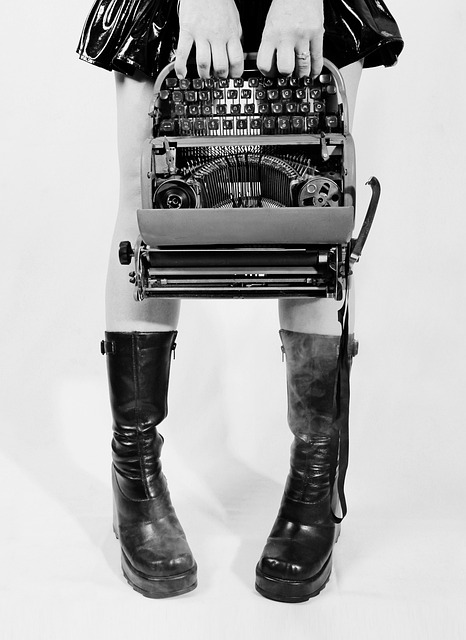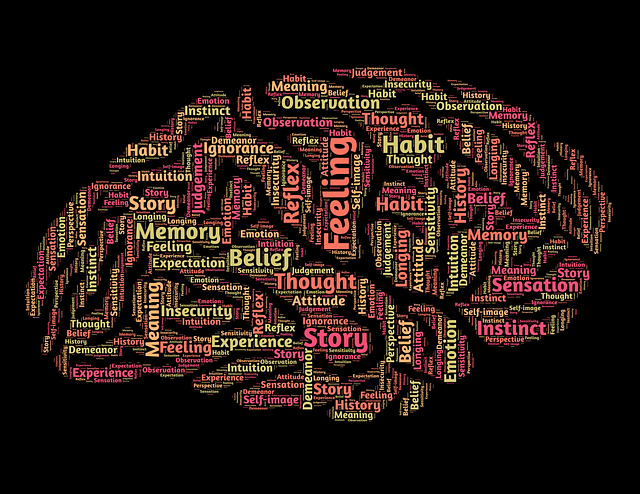Have you ever found yourself staring at a blank page, hoping for inspiration to strike but feeling as though your creativity is locked away? If so, you are certainly not alone. Writer’s block, that dreaded condition that stifles our ability to put words on paper, is a common affliction among writers of all levels and backgrounds. It doesn’t discriminate, affecting seasoned professionals and aspiring novices alike. But fear not, as we delve into the depths of this frustrating phenomenon, we will explore the various causes, potential solutions, and strategies to unlock your full writing potential. So grab your pen and paper, because we are about to embark on a journey to unravel the mysteries of writer’s block and unleash your creativity.
Contents
- Understanding the Impact of Writer’s Block on Creativity
- Unraveling the Psychological Factors That Contribute to Writer’s Block
- Exploring Effective Strategies to Overcome Writer’s Block
- Harnessing Inspiration: Nurturing a Creative Mindset to Combat Writer’s Block
- The Role of Environment and Routine in Unlocking the Potential of Writers
- Tapping into Alternative Methods: Exploring Non-Traditional Approaches to Beat Writer’s Block
- Embracing Self-Compassion: Fostering a Positive Mindset to Overcome Writer’s Block
- Overcoming Writer’s Block with Self-Compassion
- Frequently Asked Questions
- Wrapping Up
Understanding the Impact of Writer’s Block on Creativity
Exploring the Paralyzing Grasp of Writer’s Block
At some point, every writer experiences the crippling phenomenon known as writer’s block. This seemingly impassable barrier can strike anyone, from seasoned authors to aspiring bloggers, and has a profound impact on the creative process. Understanding the underpinnings and consequences of writer’s block is vital for those looking to harness their creativity to the fullest.
- Afflicting the Mind: Writer’s block infiltrates the mind, leaving writers feeling mentally drained and devoid of ideas. It can stem from various sources such as fatigue, self-doubt, or an overwhelming fear of failure. This mental blockade inhibits the flow of thoughts and ideas, paralyzing the writer’s ability to produce quality work.
- Affirming the Cycle: Writer’s block has the unfortunate ability to perpetuate itself, creating a vicious cycle. The more a writer stresses over their lack of inspiration, the more difficult it becomes to break free from the creative rut. This further compounds the mental strain, eroding the writer’s confidence and further amplifying the effects of writer’s block.
- Diminishing Productivity: The impact of this condition spills over into all aspects of a writer’s life. From missed deadlines to failed projects, writer’s block hampers productivity and creativity across the board. It not only affects professional writers but can also hinder personal endeavors, leaving a writer constantly second-guessing their abilities.
By delving into the complex nature of writer’s block, one can begin to comprehend the toll it takes on creative endeavors. Next, let’s explore strategies to overcome this paralyzing barrier and reignite the flame of inspiration.
Unraveling the Psychological Factors That Contribute to Writer’s Block
A writer’s block is a complex phenomenon influenced by various psychological factors. Understanding and unraveling these factors is crucial to overcoming this frustrating obstacle that often hampers creativity and productivity. Let us delve into some of the key psychological aspects that may contribute to writer’s block:
- Self-doubt: The fear of not being good enough or the constant questioning of one’s abilities can significantly impede a writer’s progress. Thoughts like “I’m not talented enough” or ”Nobody will like my work” can create a paralyzing effect, hindering the flow of ideas and the ability to express oneself freely.
- Perfectionism: The innate desire to produce flawless work can be a double-edged sword. While striving for perfection can motivate writers to create exceptional pieces, it can also lead to self-imposed pressure and a reluctance to start or continue writing. The fear of making mistakes or not meeting impossibly high standards can often result in a creative block.
- External expectations: The pressure to meet external expectations, whether from publishers, professors, or even peers, can add an overwhelming burden to a writer’s psyche. The constant need for approval or meeting deadlines can stifle creativity and leave writers feeling trapped.
Addressing these psychological factors underlying writer’s block is essential for unlocking the writer’s potential. By cultivating self-belief and embracing imperfections, writers can regain their creative spark. Additionally, setting realistic goals and avoiding comparisons can help lessen the impact of external expectations. Understanding and overcoming these psychological barriers paves the way for a more fulfilling and liberated writing journey.
Exploring Effective Strategies to Overcome Writer’s Block
Writer’s block is a common hurdle that many writers face at some point in their creative journey. It can be frustrating and demotivating when the words just don’t flow as easily as they should. However, there are several tried and tested strategies that can help you overcome this obstacle and get back into the writing groove:
1. Take a break:
Sometimes stepping away from your work and giving yourself a mental break can do wonders for combating writer’s block. Engage in activities you enjoy, such as going for a walk, listening to music, or practicing mindfulness. By clearing your mind, you make space for new ideas and refresh your creativity.
2. Freewriting:
Freewriting is a fantastic technique to loosen up your writing muscles. Set a specific time, grab a pen and paper or open a blank document, and start writing whatever comes to mind. Don’t worry about grammar or making sense—just let your thoughts flow. This exercise helps to silence your inner critic and encourages a more spontaneous and uninhibited writing style.
Harnessing Inspiration: Nurturing a Creative Mindset to Combat Writer’s Block
As writers, we’ve all experienced that dreaded feeling of staring at a blank page, unable to summon the words to bring our ideas to life. Writer’s block can be a crippling obstacle, halting our creative flow and leaving us frustrated. But fear not! Here are some effective strategies to harness inspiration and nurture a creative mindset, allowing you to overcome writer’s block with confidence:
- Expand your horizons: Step out of your comfort zone and explore new experiences. Engage in activities that stimulate your senses, such as visiting an art gallery, reading a diverse range of books, or attending a theater performance. These encounters can spark fresh ideas and open doors to unexplored territories within your creative mind.
- Embrace the power of freewriting: Set aside dedicated time for freewriting sessions to unleash your creativity without constraints. Simply let your thoughts flow onto the paper without judgment or structure. This exercise can help you unlock hidden ideas and perspectives, allowing you to tap into your subconscious mind and overcome blocks that might be holding you back.
- Seek inspiration from nature: Nature has an inherent ability to inspire. Take a walk in the park, sit by the ocean, or hike to a breathtaking mountain summit. The sights, sounds, and smells of the natural world can ignite your imagination and infuse your writing with fresh vitality.
By implementing these strategies, you’ll find yourself armed with an arsenal of techniques to combat writer’s block. Remember, the creative process is unique for each individual, so explore what works best for you. Harness the power of inspiration and embrace a creative mindset to breathe life into your writing like never before!
The Role of Environment and Routine in Unlocking the Potential of Writers
The Importance of Environment:
Creating the right environment is crucial for writers to unlock their full potential. A supportive and inspiring atmosphere plays a significant role in nurturing creativity and boosting productivity. Here’s how the environment can impact writers:
- Space: Having a dedicated writing space free from distractions allows writers to focus and immerse themselves in their work. Whether it’s a cozy study room, a coffee shop, or a peaceful garden, writers need a space that encourages deep concentration and ignites their imagination.
- Aesthetics: Surroundings that are visually appealing can stimulate a writer’s senses and enhance their inspiration. Decorate the writing space with items that inspire them, such as artwork, quotes, or plants.
- Comfort: Physical comfort is essential for maintaining energy and focus. Ergonomic furniture, proper lighting, and a comfortable chair can make a world of difference in preventing distractions and allowing writers to stay in the flow.
The Power of Routine:
Establishing a writing routine is another key factor in maximizing a writer’s potential.
- Consistency: Consistency is crucial for writers to develop discipline. Setting aside dedicated time each day or week helps train the brain to be more creative at specific intervals, leading to greater productivity and writer’s block prevention.
- Clear Goals: Setting clear and achievable writing goals gives writers a sense of direction and purpose. It provides a roadmap that guides them in organizing their thoughts and ideas effectively.
- Rituals and Habits: Incorporating rituals or habits into the writing routine can help signal the brain that it’s time to get into the writing mindset. This could be anything from brewing a cup of tea or coffee, listening to inspirational music, or taking a short walk before diving into writing.
Tapping into Alternative Methods: Exploring Non-Traditional Approaches to Beat Writer’s Block
Writer’s block can undoubtedly be frustrating and discouraging. However, there are several non-traditional techniques you can employ to overcome this creative hurdle. Let’s dive into a couple of these unconventional approaches that can help reignite your writing mojo:
- Embrace freewriting: Sometimes, the best way to break through writer’s block is to simply let your thoughts flow freely onto the page. Write without worrying about grammar, structure, or coherence. Allow your mind to wander and explore different ideas. Don’t be afraid to write nonsense or gibberish; it’s all part of the process. Freewriting not only helps to stimulate your creativity but also allows you to discover unexpected connections and prompts fresh insights.
- Experiment with alternative mediums: If you find yourself staring at a blank document, struggling to type a single word, consider switching up your creative environment. Experiment with different mediums, such as pen and paper, a typewriter, or even a voice recorder. Engaging your senses in new ways can trigger different parts of your brain and open up pathways to inspiration. So go ahead, grab a nice journal and a fancy pen, or borrow your grandmother’s old typewriter for a change. Who knows, this unconventional switch might just be the spark you need to break free from the clutches of writer’s block!
Embracing Self-Compassion: Fostering a Positive Mindset to Overcome Writer’s Block
Overcoming Writer’s Block with Self-Compassion
As writers, we’ve all experienced the frustrating phenomenon known as writer’s block. It can feel like hitting a creative roadblock, leaving us feeling uninspired and stuck. But what if there was a way to break free from this mental barrier? Enter self-compassion – the practice of treating ourselves with kindness and understanding, even in moments of struggle.
Embracing self-compassion is essential for fostering a positive mindset and overcoming writer’s block. Instead of berating ourselves for not meeting our writing goals or feeling guilty for lack of inspiration, we can choose understanding and self-care. Here are a few powerful strategies to incorporate self-compassion and nurture a flourishing creative mindset:
- Practice Self-Forgiveness: Allow yourself to make mistakes and have unproductive days. Embrace imperfection and let go of self-judgment. Remember, failure is an inevitable part of the creative process.
- Cultivate Mindfulness: Practice being fully present in the moment while writing. Let go of worries about the outcome or past judgments. Focus on the joy of expressing yourself through words.
- Change Your Inner Dialogue: Replace negative self-talk with positive affirmations. Encourage and motivate yourself with kind words. Treat yourself as you would a supportive friend.
- Take Breaks and Practice Self-Care: Step away from the writing desk when you’re feeling stuck or overwhelmed. Engage in activities that recharge your creative energy, such as going for a walk, meditating, or listening to inspiring podcasts. Prioritize your well-being.
By embracing self-compassion and nurturing a positive mindset, writer’s block becomes a challenge to conquer rather than an insurmountable obstacle. Remember, you have the power to overcome this mental hurdle and unleash your creative potential once again!
Frequently Asked Questions
Q: What is writer’s block?
A: Writer’s block is a common phenomenon that refers to a creative slowdown or a mental barrier experienced by writers. It prevents them from producing new work or finding inspiration to continue their writing projects.
Q: What causes writer’s block?
A: Writer’s block can have various causes. It might be triggered by personal issues, such as stress, anxiety, or a lack of confidence. External factors like distractions or a demanding schedule can also contribute to the development of writer’s block. Additionally, trying to meet unrealistic expectations or having a fear of failure can hamper a writer’s creativity.
Q: How does writer’s block affect writers?
A: Writer’s block can have a significant impact on writers both professionally and emotionally. It can lead to frustration, self-doubt, and feelings of inadequacy. For professional writers, it can mean missed deadlines, loss of income, and a damaged reputation. Emotionally, it can be a demoralizing experience, hindering personal growth and inhibiting the natural flow of creativity.
Q: Are there any strategies to overcome writer’s block?
A: Absolutely! While the methods can vary for each individual, here are a few common strategies to help overcome writer’s block:
1. Relaxation techniques: Practices like deep breathing, meditation, or taking a walk can help alleviate stress and clear the mind.
2. Freewriting: Simply writing without worrying about grammar, structure, or coherence can help jumpstart the creative process. The aim is to let the thoughts flow with no pressure.
3. Change of environment: Sometimes a change in surroundings can bring a fresh perspective. Working in a different location, like a coffee shop or a park, can spark inspiration.
4. Setting realistic goals: Breaking down writing tasks into smaller, manageable goals can alleviate the overwhelming feeling of a large project and make it easier to get started.
5. Seeking support: Sharing your struggles with fellow writers, joining writing groups, or seeking professional help through therapy or coaching can provide valuable support and guidance.
Q: Can writer’s block be prevented?
A: While writer’s block is difficult to entirely prevent, there are steps writers can take to reduce its occurrence. These include establishing a consistent writing routine, setting realistic expectations, nurturing a supportive environment, and maintaining a healthy work-life balance. Additionally, practicing self-care, engaging in regular physical exercise, and cultivating hobbies outside of writing can promote overall mental well-being, making it easier to overcome creative challenges.
Q: Is writer’s block a permanent condition?
A: No, writer’s block is not a permanent condition. Although it can be disheartening and persistent, most writers eventually find ways to overcome it. By implementing diverse strategies, seeking support, and maintaining a positive mindset, writers can regain their creative flow and continue to produce quality work.
Q: Can writer’s block serve a purpose?
A: Writer’s block, while frustrating, can serve as an opportunity for growth and self-reflection. It forces writers to analyze their creative process, discover new perspectives, and explore alternative ways of expressing themselves. Embracing writer’s block as a natural part of the creative journey can lead to personal development and contribute to the evolution of a writer’s style.
Q: Are famous writers immune to writer’s block?
A: No, even renowned writers have experienced writer’s block at some point in their careers. Writers like J.K. Rowling, Ernest Hemingway, and F. Scott Fitzgerald have all openly admitted to facing periods of creative stagnation. Writer’s block is a universal challenge that can affect anyone, regardless of their experience or success in the writing field.
Wrapping Up
In conclusion, writer’s block is a common hurdle that many writers face, but by adopting various strategies and staying persistent, it can be successfully overcome. Keep pushing forward and unlocking your true potential as a writer!






